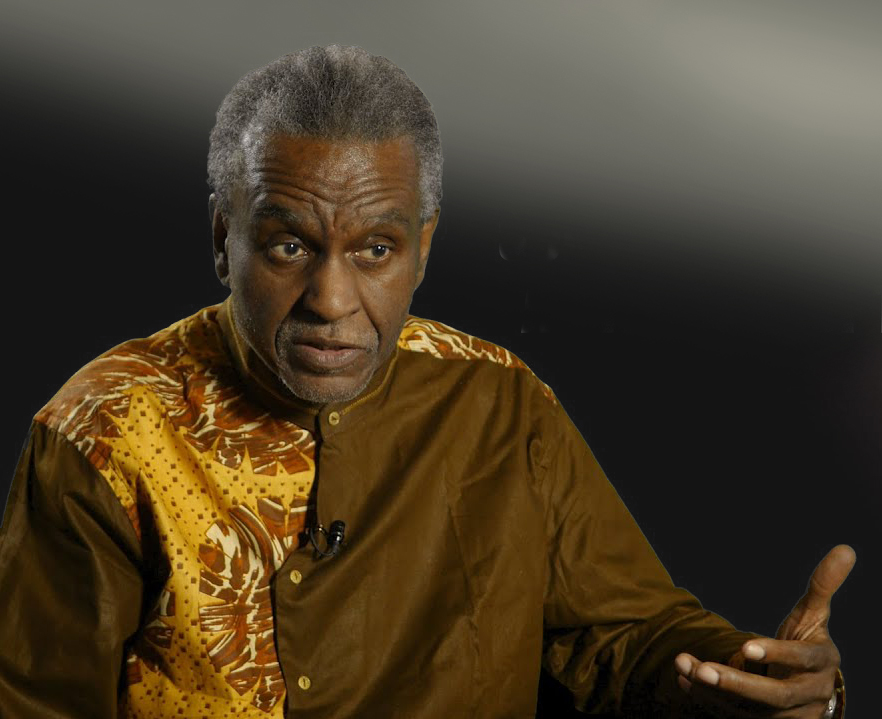In a decision overturning nearly six decades of legal ruling, the U.S. Supreme Court said that police officers who fail to give Miranda warnings before an interrogation can no longer be sued for violating an individual’s constitutional rights.
“You have the right to remain silent. Anything you say can and will be used against you in a court of law. You have the right to speak to an attorney, and to have an attorney present during any questioning. If you cannot afford a lawyer, one will be provided for you at government expense,” is the phrase that for decades was intended to grant suspects their federal constitutional rights, called Miranda rights.

However, recently declared by a 6 – 3 majority, favoring conservatives, America’s highest court has not only ended a well-established norm in law enforcement, but most importantly, it has created a new level of immunity for officers that violate Fifth Amendment protections laid out in the U.S. Constitution. The Fifth Amendment states, in part, that no person “shall be compelled in any criminal case to be a witness against himself.” With the new ruling now suspects who do not receive a Miranda warning cannot sue an officer for damages.
“The warnings mandated by the Supreme Court in Miranda have been part of the fabric of law enforcement interactions with the public for more than 60 years,” said Brett Max Kaufman, senior staff attorney with the ACLU. “By denying people whose rights are violated the ability to seek redress under our country’s most important civil rights statute, the Court further widens the gap between the guarantees found in the Constitution and the Bill of Rights and the people’s ability to hold government officials accountable for violating them,” he explained.
Miranda Rights were designed as a preventative measure to uphold an individual’s Fifth Amendment protections, and reinforced through a previous Supreme Court decision, Miranda v. Arizona in 1966. The new 2022 ruling issued June 23 has undone a long-standing principle of letting decisions stand and establishes a precedent for eroding further court cases, particularly those of the Civil Rights Era.
“We fought for the Supreme Court to recognize these rights, and we’ll keep fighting to make sure our country lives up to the Constitution’s guarantees,” Atty. Kaufman said.
Melba Pearson, a former homicide prosecutor in Miami and an attorney focusing on civil rights and criminal law today, serves as the president of the National Black Prosecutors Association Foundation and said the recent Supreme Court decision has eroded the illusion of impartiality by the conservative justices on the bench.

University of Houston Professor of History and African American Studies, Dr. Gerald Horne Photo: Final Call
‘I would not take comfort from the fact that apparently Miranda in the criminal law sense is still intact because this Supreme Court could decide next year to overthrow that, too. We’re in a pre-fascist era and we’re only a few steps away from fascism.’
–Dr. Gerald Horne
“When you think about the broader consequences—a violation of Miranda may result in spending time in jail waiting for trial/resolution, leading to the loss of job(s), income and harm to the family unit or even a wrongful conviction from a forced confession—a lawsuit, while not making the person whole, is a measure of accountability that has now been lost,” Atty. Pearson said in a written statement emailed to The Final Call.
“By ruling that people wronged by the actions of police officers cannot sue to get monetary compensation in court, one of the only remedies people have for police abuse has been ripped away. This ruling, in addition to removing the ability to claim actual innocence in certain types of criminal cases when appealed, shows that the courts may no longer be the civil rights remedy it once was for at least a generation to come,” she explained.
The Supreme Court’s decision was based on the case of Vega v. Tekoh. Plaintiff-Appellant Terence B. Tekoh, an immigrant from Cameroon, West Africa, was arrested and tried for the “unlawful sexual penetration” of a patient while employed at a California medical center but found not guilty after an initial mistrial. Following his acquittal in criminal court, Tekoh eventually filed civil charges against multiple defendants in 2021, including Deputy Carlos Vega, alleging violations of his Fifth Amendment rights through a coerced confession. The Ninth Circuit Court in San Francisco ultimately agreed with Tekoh and remanded the case to the lower courts for litigation.
“False confessions by innocent people are real. Wrongful convictions of innocent people are also real. Yet the criminal justice system has failed to develop sufficient mechanisms to connect these phenomena or adopt meaningful rules to prevent their occurrence. Each of these phenomena undermine the integrity of the criminal justice system. Collectively, they reflect a catastrophic failure,” an amicus brief in support of Tekoh, stated in part upon Vega’s appeal to the high court.
The case, subsequently argued before the U.S. Supreme Court on April 20, 2022, was ruled June 23 that: “Because a violation of Miranda is not itself a violation of the Fifth Amendment, and because we see no justification for expanding Miranda to confer a right to sue under (42 U.S. Code §1983), the judgment of the Court of Appeals is reversed, and the case is remanded for further proceedings consistent with this opinion. It is so ordered,” Justice Samuel Alito wrote at the conclusion of the majority opinion.
Institutional politics and people’s rights
Explaining that the public doesn’t have a thorough understanding of the lobbying, politics and legislation behind law enforcement policy, Ed Haynes, a former criminal justice teacher and police academy instructor in Miami-Dade County, Florida, told The Final Call that Miranda warnings have been traditionally viewed as a tool to ensure a detained person understands their constitutional rights within the jurisdiction of the United States and that not knowing how the system works only snares them into what is often an expensive and unforgiving system.
“Basically, the ‘Joe public’ is for the most part unaware of the law and how the law operates, so because of that, they (may) inadvertently, sometimes position themselves in positions that are not to their favor, only because they were not given adequate legal advice in terms of giving information,” Mr. Haynes explained.
“So, Miranda basically gives a person an opportunity to be made aware that anything they say can actually be used in a court of law.”
The nature of power seeks to expand control within its given environment and reducing an individual’s safeguards and protections from an institution’s overreach or a government’s intrusion, opens the door to oppression, corruption and the abuse of authority, Mr. Haynes explained.
“When you have things such as Miranda, or any other type of escape valve, then it creates a problem for that power structure because that power structure, for the most part, wants to be absolute,” Mr. Haynes said of why he believed lobbyists sought to overturn Miranda warning protections through the courts. “When you have trapdoors and escape doors (that) people can get out of because of the culture that has existed that allows for people to be slack and not operate at optimum performance themselves, then they need that flexibility of coverage so that they can have productivity.”
University of Houston Professor of History and African American Studies Dr. Gerald Horne told The Final Call that people must pay close attention to the significance of this Supreme Court decision.
“Generally speaking, this recent Supreme Court case does not speak to criminal aspects, it speaks to the civil aspects, however, the wider point is this Supreme Court is on a tear, as represented by all of these recent cases that has the nation in an uproar,” he said. “So, I would not take comfort from the fact that apparently Miranda in the criminal law sense is still intact because this Supreme Court could decide next year to overthrow that, too. We’re in a pre-fascist era and we’re only a few steps away from fascism,” he said.

Pamela Muhammad, a Texas-based attorney and registered member of the Nation of Islam, told The Final Call that the upheavals from America’s multiple social and political problems, including those generated by recent Supreme Court decisions, are quickening the pace of America’s unraveling and will eventually force the people to seriously consider separation as the best and only solution to injustice.
Attorney Muhammad said the Supreme Court’s new interpretation of a nearly 60-year-old precedent expands police powers while removing an important component protecting the rights of the people. “There’s really not a valid distinction between Miranda and your right against self-incrimination under the Fifth Amendment because Miranda is a vehicle to make sure that you get your rights upheld, to safeguard the right against self-incrimination by warning you that you have a right to remain silent, you have a right to have a lawyer and that anything you say can be used against you, so to make the distinction that the Court is making Miranda not part of the constitutional framework, I don’t agree with that,” she insisted.
Adding that an uneducated or unaware population will once again bear the brunt of even more qualified immunities afforded to police, Atty. Muhammad argued that separation, taught by the Most Honorable Elijah Muhammad, as represented by the Honorable Minister Louis Farrakhan, is the best and only solution to the rising tide of injustices facing the American people in general, but Black people in particular.
“A person may not know he’s in custody, he may not know he’s free to leave and so, all of this gray area is being created where a person’s rights may be being violated under (denial of) Miranda and then as a result, they end up in a criminal case, I believe that this is something that is often going to be in dispute in a trial,” Atty. Muhammad noted.
“If Miranda is violated, rather than suppress the evidence, they use it against you, so if they use it against you and your rights have been violated, and they’re taking away the right for you to sue civilly, then what can you do?”













